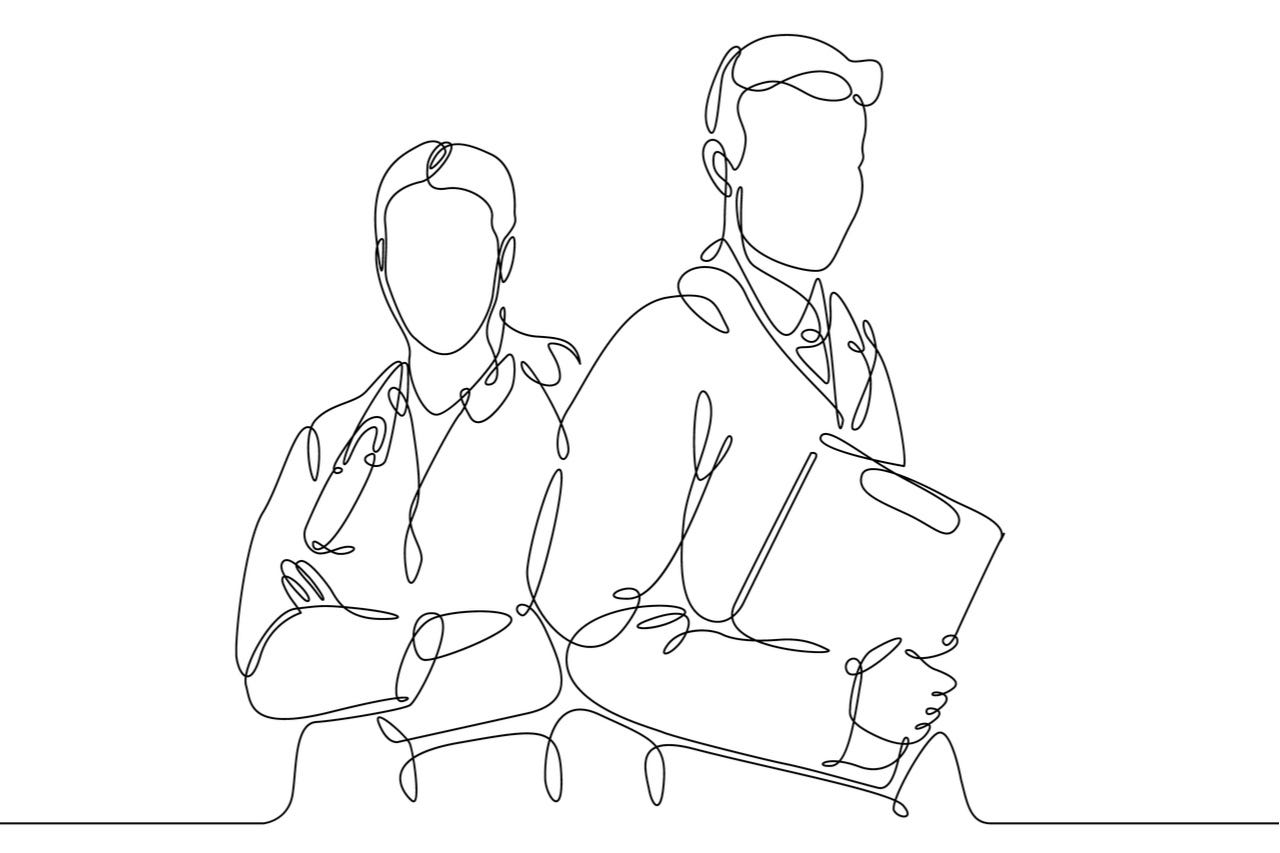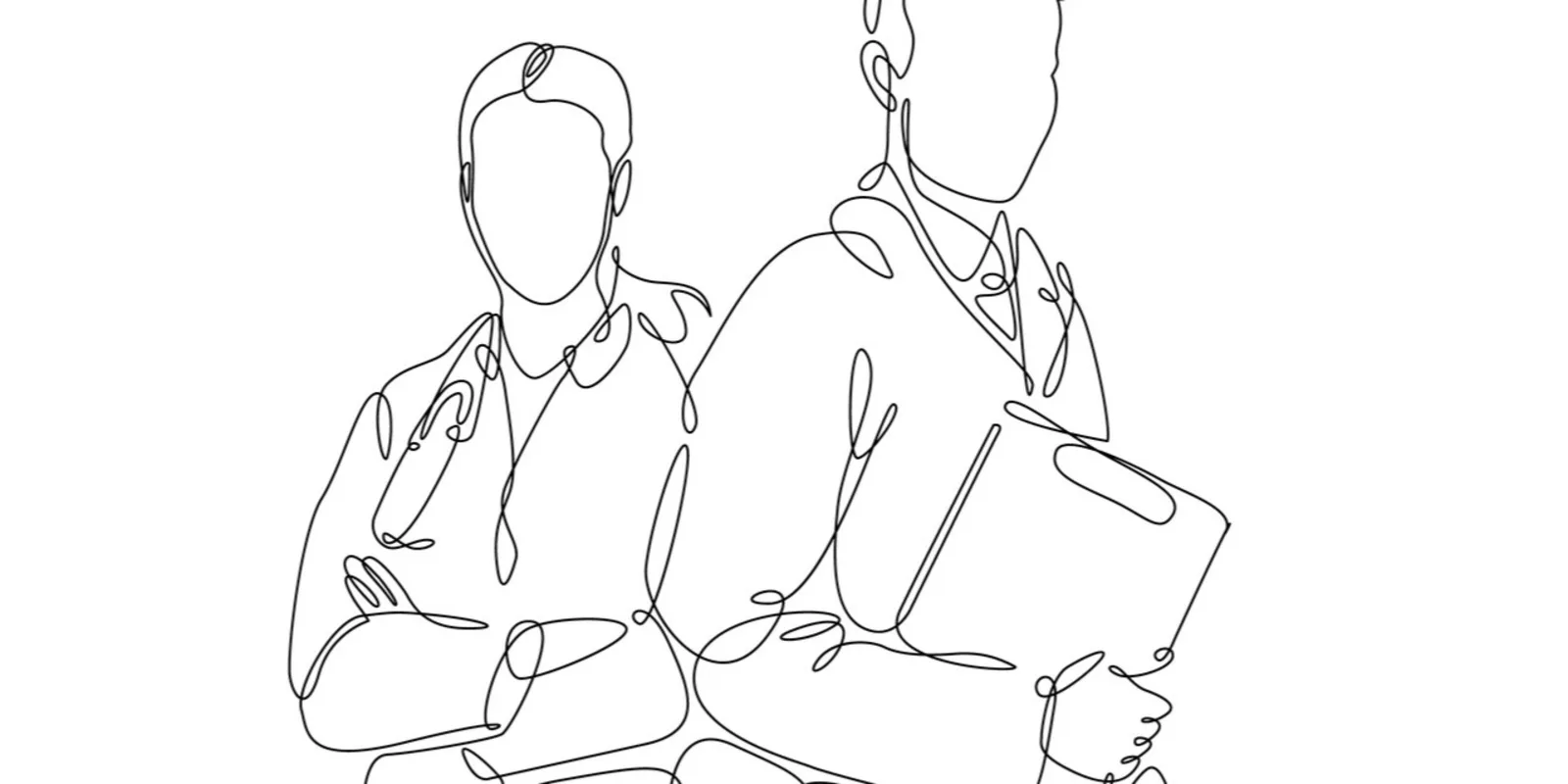
If having a job is dating, medicine is a marriage with six kids — it’s a lifestyle choice.
I’ve heard that if you want to live from your garden, you have to live in your garden. The same idea applies to being a physician — you have to constantly maintain it if you want to live from it. There will never be a point in your life where there isn’t something you could be doing to improve your practice. Medicine becomes what you do — it becomes your lifestyle.
Only a part of the lifestyle is the content of becoming a physician and maintaining the ability to practice. But it is also the language you use, the people you work with, the impact of the content on your character, your view of others, your values, and your attitude toward life.
The Scaffolding
The signposts along the path to medical school are just the beginning. They are the marker of the life you’ve signed up for. It requires discipline and character to get through it. It’s like Marines doing push-ups in boot camp. They don’t do this because they’re going to do push-ups during a war. It’s because they’re learning the fundamentals, endurance, and discipline. That strength is then used in a wide variety of applications.
The medical knowledge you gain is a small part of the picture. It’s structural, it’s the bones. The rest of what the profession requires gives it body. Through the course of your career, you will forget more than you know and in the grand scheme of things, you’ll know very little.
You’ll constantly acquire new knowledge and forget information irrelevant to you. The type of knowledge you need will evolve — beginning with the pure sciences and ending with administrative and financial. The knowledge is a destination at which you will never completely arrive — you’ll need to learn to appreciate the path.
The expectation that you are constantly checking off the boxes will not stop until you retire. It starts with the signposts of getting into medical school. Then it’s marked by excelling in the classes, USMLE or COMLEX steps, and clinical years to get into residency. Afterward, you finish residency (and possibly fellowship) and then take your specialty boards. After that, it’s getting into the right practice and keeping up with literature.
You’ll need a never-ending stream of CME. You will need to maintain your board certification through Maintenance of Certification. You’ll have to keep up with licenses, certifications, credentials, and competencies — even outside of the time you spend caring for patients, it’s a full-time gig.
It’s not that this is something to complain about; it’s necessary to ensure physicians are up-to-date in their knowledge. If you want to live as a physician, you have to maintain it. Even the bare minimum is a significant amount of work.
The pieces of content are just the notes. They have to be in place so that you’re allowed to show up to work. The rest of it is the music.
The Less Tangible
Those notes are a small part of the lifestyle. The practical, human and emotional experience of being a physician is the rest. These experiences impact your attitude and values. They change how you view yourself and the world.
Your view of people and the way you interact with them will change. The patients you see are the people in the grocery store. They are your friends and family. You see the same personalities in your life outside of work that you have to manage while you’re at work. You have seen them at their worst, they just don’t know it. You have taken part in the best and worst day of countless people’s lives. Your experience will follow you everywhere.
Seeing people die and in physical pain, emotional pain, giving birth, dealing with drug addiction and loss—you cannot un-experience such things. Through the course of medical school and residency, you’ll see and experience such things hundreds of times. Seeing people in this way forever changes your view of humanity. The experience gives you a new depth — a new you.
The way people interact with you will also change. You are always a doctor. On the plane, at the PTA meeting, on a Sunday afternoon with your family. You are a 24/7 resource available to answer medical questions, refill prescriptions, write work notes, diagnose and treat, tend to neighbors, or review people’s medical results.
It’s an intrusive and inescapable honor. You’re always available.
The people you work with aren’t co-workers; they’re family. You’ll spend your holidays with them. They’ll spend their birthdays with you. You know when their kids are sick or their parents die. You’ll be with them through their lives — ups and downs. They become as much a part of your life as your family is. You share the same sub-culture, the same language, and the same lifestyle.
The decision to choose medicine is more than knowing you are intellectually capable of checking the boxes. It’s a choice to be personally responsible for other people’s lives. It’s a choice to sacrifice your time for a profession that enmeshes itself with every aspect of your life. Family vacations will be interrupted. Your sleep will be disturbed. There will be a constant weight on you to increase what you know, catch up with paperwork or the weight of the memories of patients you could have served better.
When you make this decision, make it knowing what you’re signing up for. Do not make it because your family thinks it’s the responsible thing to do — or because you understand the path and so you assume that means the path is right for you. You are not deciding to pursue a job — you are choosing a lifestyle where other people’s lives are dependent on you.
Medicine is non-stop. It is a lifestyle choice.
...
Dr. David Beran is a board-certified emergency physician and medical director at University Medical Center, New Orleans.







